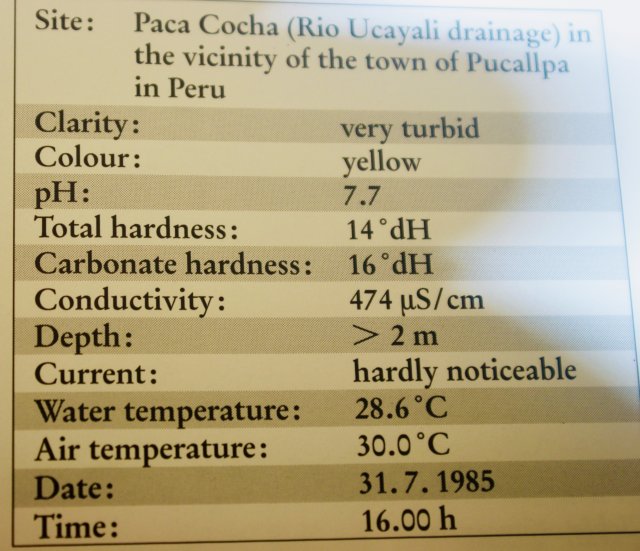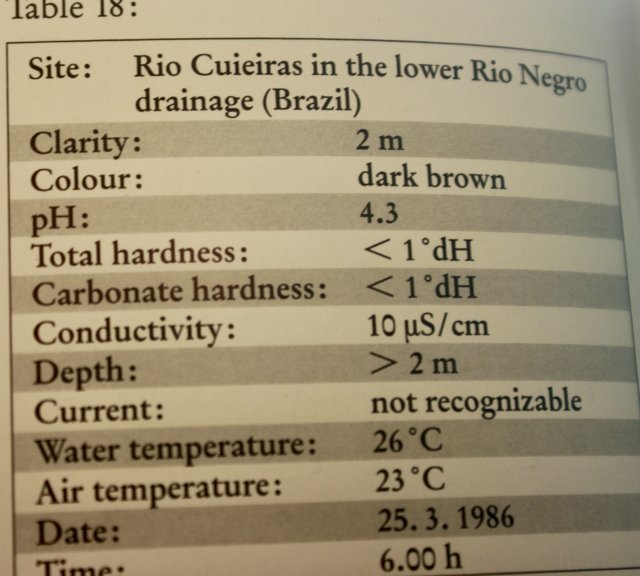Does anyone keep their bass in a brackish aquarium? I keep reading and getting told conflicting information but ideally I'd like to keep them in a low level brackish aquarium with my 'fresh water' puffer fish as a tank mate.
Bass and Brackish water?
- Thread starter G Indecisive
- Start date
It's a tetractenos hamiltoni and yeah I realise that but at the moment it's bigger than my bass which are only 7-10cm and was more hoping it was possible on the interim as the bass will go into a much bigger tank with my other bass once big enough. I'm running 11 tanks at the moment, so if I can pair them up and shut down a tank I'd be super happy!What puffer species? Bass get big enough to probably chow the smaller brackish puffer types..
Here are two examples of collection point data for the types water parameters where Cichla are naturally found.


Although Cichla may be somewhat more adaptable than many other northern South American species, brackish water is a bit of a stretch.
I live near lake Gatun, in Panama where Cichla are invasive, and become established in the lake, Gatun's waters are influenced by sea water because of influx from the Panama Canal, and pH in the lake gets quite high (up to 9) due to that salt water influx.
Here, Cichla grow to about half the size of their counterparts in the fresh water habitats of South America, so that might be a clue to the viability of a brackish set up. There are annual fishing contests for P-Bass , that measure catch, and collect data.
There are some South American cichlids sometimes found in, and more adaptable to brackish water, those of the Geophagus brazilliensus clade from southern Brazil, Argentina and Uruguay, and Andinoacara pulcher from the norther coastal regions of the continent would probably be better choices for a brackish set up.
You might also have luck, if you were able to get Cichla that have been long established in brackish areas of Florida.


Although Cichla may be somewhat more adaptable than many other northern South American species, brackish water is a bit of a stretch.
I live near lake Gatun, in Panama where Cichla are invasive, and become established in the lake, Gatun's waters are influenced by sea water because of influx from the Panama Canal, and pH in the lake gets quite high (up to 9) due to that salt water influx.
Here, Cichla grow to about half the size of their counterparts in the fresh water habitats of South America, so that might be a clue to the viability of a brackish set up. There are annual fishing contests for P-Bass , that measure catch, and collect data.
There are some South American cichlids sometimes found in, and more adaptable to brackish water, those of the Geophagus brazilliensus clade from southern Brazil, Argentina and Uruguay, and Andinoacara pulcher from the norther coastal regions of the continent would probably be better choices for a brackish set up.
You might also have luck, if you were able to get Cichla that have been long established in brackish areas of Florida.
Thanks for that! I didn't even think about putting it in with my Geo's ?Here are two examples of collection point data for the types water parameters where Cichla are naturally found.
View attachment 1428084
View attachment 1428085
Although Cichla may be somewhat more adaptable than many other northern South American species, brackish water is a bit of a stretch.
I live near lake Gatun, in Panama where Cichla are invasive, and become established in the lake, Gatun's waters are influenced by sea water because of influx from the Panama Canal, and pH in the lake gets quite high (up to 9) due to that salt water influx.
Here, Cichla grow to about half the size of their counterparts in the fresh water habitats of South America, so that might be a clue to the viability of a brackish set up. There are annual fishing contests for P-Bass , that measure catch, and collect data.
There are some South American cichlids sometimes found in, and more adaptable to brackish water, those of the Geophagus brazilliensus clade from southern Brazil, Argentina and Uruguay, and Andinoacara pulcher from the norther coastal regions of the continent would probably be better choices for a brackish set up.
You might also have luck, if you were able to get Cichla that have been long established in brackish areas of Florida.
Welcome aboardThanks for that! I didn't even think about putting it in with my Geo's ?
Be careful about Geo's, if you have inland Amazonian Geo's (such as those from the altifrons clade), many of these are less tolerant of brackish conditions, as are P-Bass from inland areas.Thanks for that! I didn't even think about putting it in with my Geo's ?
G. braziliensus are found in, and adapted to, more coastal brackish waters, unlike the inland soft water species.
Not that a little salt is deadly, but in some soft water situations, may be the impetus for chronic diseases like HLLE.
The Cichla in Lake Gatun, were accidentally released in the early 1960s, so this has given them almost 60 years and many generations to adapt to the Panamanian water parameters, it may be anybody's guess how many were spawned but succumbed too the higher osmotic conditions, allowing only those few hardy adaptees to the different and less welcoming conditions to survive, and reproduce.
Last edited:











